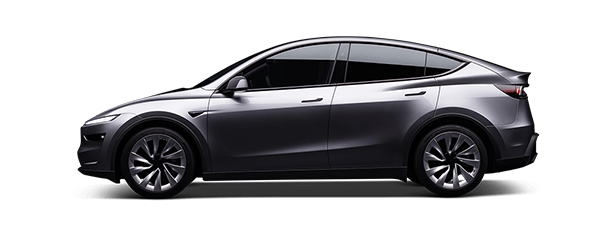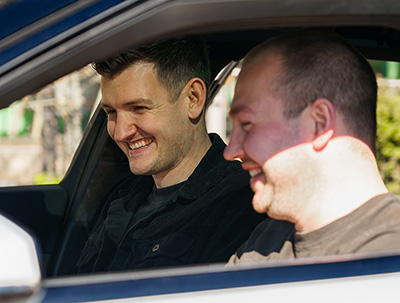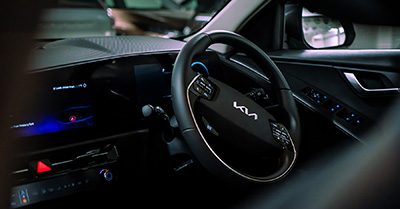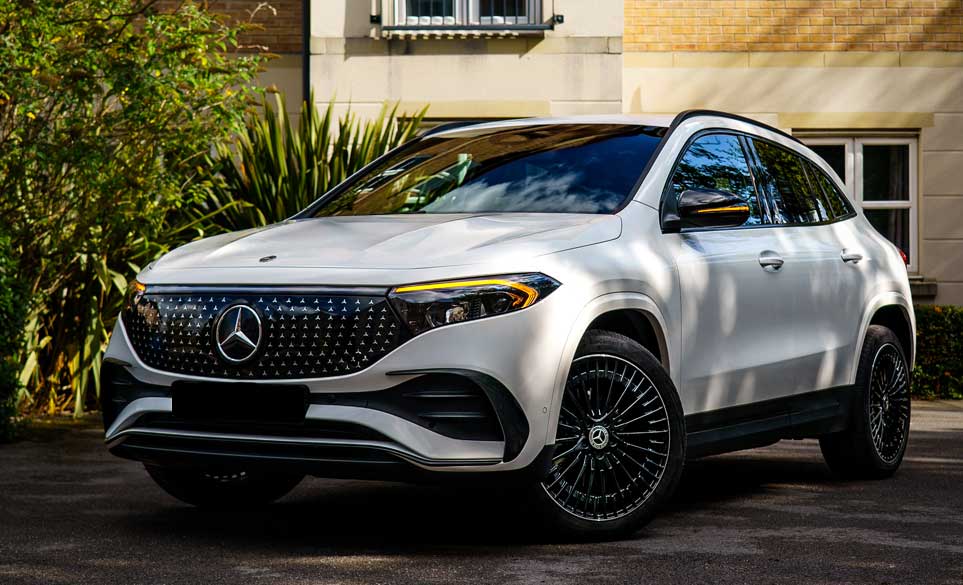Cash allowance, salary sacrifice or company car?
Lately, many of us have had to get savvy with our spending. Your new car dreams may have been parked for the foreseeable.
If you receive a cash allowance as part of your perks package, a salary sacrifice, or company car could help you get more bang for your buck, whilst making your new car fantasies a reality.
But with so much choice, it can be hard to know what to choose. Have no fear, here’s a handy overview of your options, so you can pick the scheme that best suits you.

Cash allowance
What is a cash allowance?
A cash allowance is an additional payment on top of your salary to go towards the cost of running a car. Unlike a company car, the allowance is paid directly to you as part of your salary and is subject to income tax and National Insurance.

Benefits of cash allowance
You can spend the money on whichever car or package you want.
Things to consider with cash allowance
Unlike salary sacrifice and company car schemes, a cash allowance is treated as additional income. This means that the extra payment is subject to your personal income tax rate.
With a cash allowance, you are responsible for covering all the associated costs of running and maintaining a car. This includes:
- Insurance: you’ll need to arrange and pay for your own car insurance. (If you drive the car for business, you’ll need to ensure business insurance is included.)
- Maintenance: any repairs, servicing or maintenance costs will be your responsibility.
- Breakdown cover: you will need to organise and pay for roadside assistance or breakdown coverage.
- Road tax: unlike a company car where road tax is covered, you’ll need to pay for your own annual road tax.
While a cash allowance gives you the flexibility to spend the money on whichever car or package you want, it’s important to factor in these additional costs when deciding if it’s the right option for you.

Choose a car allowance if...
Flexibility is the most important aspect for you. Just remember that you’re responsible for all aspects of ownership or the T&Cs of the scheme that you choose and that the value of cars can depreciate.
Company car
What is a company car?
A company car is a benefit provided by employers to the employee for business use. Most employers allow the car to be used for personal use too (but if you’re ever unsure, ask your employer or check your policy).
Benefit-in-Kind tax
Company cars are classed as benefits, so you’ll pay Benefit-in-Kind (BiK) tax. Electric vehicles (EVs) have lower BiK rates than traditional combustion engine cars, so it could be worth your while to make the switch to electric.
Benefits of a company car
Your employer will take care of the cost, including the maintenance, and servicing (making it a very cost-effective option for you), as well as the admin side of things.
With a company car scheme, you get:
- A brand-new car
- Fully comprehensive insurance
- Road tax*
- Scheduled servicing and maintenance
- Breakdown cover
- Replacement tyres
- Windscreen and glass cover
- Accident management

If you choose to take a cash allowance instead of a company car and opt for a private lease arrangement, it’s important to consider your mileage. The more miles you drive, the higher the costs are likely to be, so make sure you factor this into your decision when weighing up the best option for you.
Things to consider with a company car
Some employers have a list of eligible cars, and you won’t own the car. As it’s a benefit, there’ll also be BiK tax.
Go for a company car if…
- You want an all-inclusive* package that’s all taken care of by your employer.
- You can get a new high-spec car with all the latest safety features and mod-cons upgraded every few years, without the upfront costs.
- You prefer a hassle-free option without the risks of depreciation or unexpected repair costs.
- You want to benefit from lower BiK tax rates, especially if choosing an electric vehicle, compared to a cash allowance, which is subject to income tax and National Insurance.
Company car FAQs
Everything you need to know about company cars. If you're eligible for a company car scheme for perk or business use within your organisation, check out our company car frequently asked questions (FAQs).
Salary sacrifice
What is salary sacrifice?
With salary sacrifice you sacrifice part of your gross salary to receive the benefit of a company car. As the cost of the car is deducted from your gross salary, you save tax and National Insurance.
Similarly to company cars, if you opt for salary sacrifice, you’ll pay BiK tax. One of the benefits of choosing an electric vehicle (EV) is the lower BiK rate compared to petrol and diesel equivalents.
Don’t worry about figuring it all out, our website will break down all the costs and tax payments for you .
Get a quote
My Account
If your company currently has a salary sacrifice car scheme with Zenith and you're looking to browse the cars available, log in or activate your account using the link below.
Benefits of salary sacrifice
Salary sacrifice is an inclusive scheme, so we take care of all the additional admin.
You get:
- A brand-new car
- Fully comprehensive insurance
- Road tax*
- Scheduled servicing and maintenance
- Breakdown cover
- Replacement tyres
- Windscreen and glass cover
- Accident management
- No deposit required.
The best part? The cost is automatically deducted from your salary, so all you need to do is add fuel and enjoy your new wheels.
Can I use my cash allowance towards salary sacrifice?
If your employer doesn’t offer a company car scheme, you can take your cash allowance and use this towards the cost of a salary sacrifice car. Doing this means you’ll benefit from tax and NI savings.
Things to consider
Your car is linked to your employment, so make sure you’re able to meet the T&Cs (for example, if you think you’re going to switch jobs soon, this isn’t the best option for you).
Go for salary sacrifice if...
You are looking for an affordable, hassle-free package on a swanky new car.




